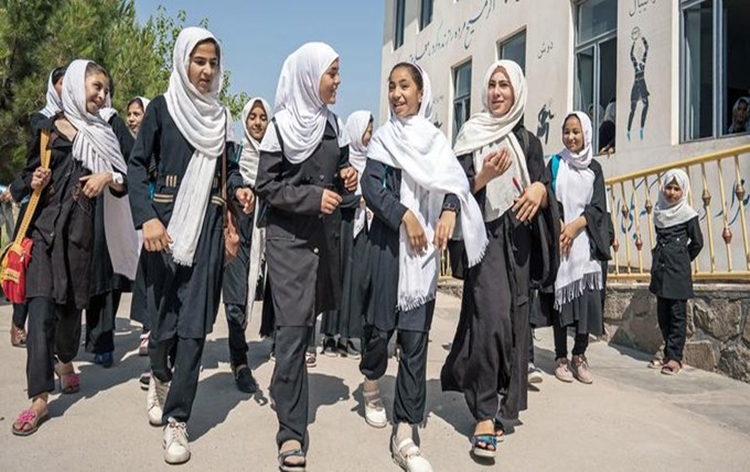UNESCO dedicates 2023 International Day of Education to Afghan girls & women
Each year, January 24 is observed as the International Day of Education, as mandated by United Nations to highlight the importance of equal access to good quality education to every human being anywhere in the world.
In order to highlight the plight of the women and girl children of Afghanistan, who have been barred by the Taliban regime from going to schools and colleges, in a throwback to their rule three decades ago, the United Nations Educational, Scientific and Cultural Organisation has dedicated the upcoming occasion to the girls and women of the South Asian nation gripped by violence for over half a century.
In a press statement, UNESCO says that its Director-General of UNESCO Audrey Azoulay has decided to dedicate the 2023 International Day of Education (January 24) to Afghan girls and women. On the occasion of an event organized at the UN headquarters, UNESCO will renew its call to immediately restore their fundamental right to education.
“No country in the world should bar women and girls from receiving an education. Education is a universal human right that must be respected. The international community has the responsibility to ensure that the rights of Afghan girls and women are restored without delay. The war against women must stop,” says Azoulay.
The statement adds that on this occasion, UNESCO is hosting an event at the United Nations in New York, with the contribution of the UN Secretary-General, the President of the UN General Assembly, as well as UNESCO’s Director-General. The first panel discussion will be devoted to the education of girls and women in Afghanistan.
Currently, 80 pc or over 2.5 million of school-aged Afghan girls and young women are out of school, because of the decision of the de facto authorities to deny them access to secondary schools and universities. The statement says that since August 2021, UNESCO has adapted its interventions to support the continuity of education in challenging circumstances.
It adds that a UNESCO advocacy campaign reached over 20 million Afghans to increase public awareness of the right to education for youth and adults, especially adolescent girls and women. UNESCO has also partnered with NGOs on the ground, providing content and funding to deploy a community-based literacy campaign that targeted 25,000 young people and adults in rural areas, including mostly adolescent girls above the age of 15 and women.
To reach as many girls and women as possible, UNESCO is also working to provide distance education through Afghan media outlets, especially radio stations. Radio is accessible to more than two thirds of the population and has the advantage of being available directly in homes.
Thanks to many donors, UNESCO is supporting them in the production of conflict-sensitive, humanitarian, health and educational public interest content, aiming to reach at least six million Afghans, with a specific focus on women and girls. This includes direct support to a women-led station that will produce over 200 hours of educational content per month dedicated to girls and women, broadcast to at least eight provinces across the country in 2023.
Every day without education hinders progress made since 2001
However, UNESCO cautions the long-term damage being done by the Taliban to the country and its socio-economic fibre through its diktats. It says that despite its efforts to minimise the damage, nothing can replace the classroom, which is a place of social integration, where people learn to live together, where students and teachers take part in the pedagogic process. Therefore, UNESCO and its Member States will also continue their advocacy to put the right to education of Afghan girls and women at the top of the international agenda.
The decisions by the de facto authorities in Afghanistan threaten to wipe out the development gains made by the country over the past 20 years. From 2001 to 2021, Afghanistan saw a tenfold increase in enrolment at all education levels from around 1 million students to around 10 million, with the support of the international community, including UNESCO.
During this period, the number of girls in primary school increased from almost zero to 2.5 million. Women’s participation in Afghan higher education also increased almost 20 times, from 5,000 students to over 100,000. Literacy rates for women almost doubled, from 17 pc of women being able to read and write in 2001 to nearly 30 pc for all age groups combined.










